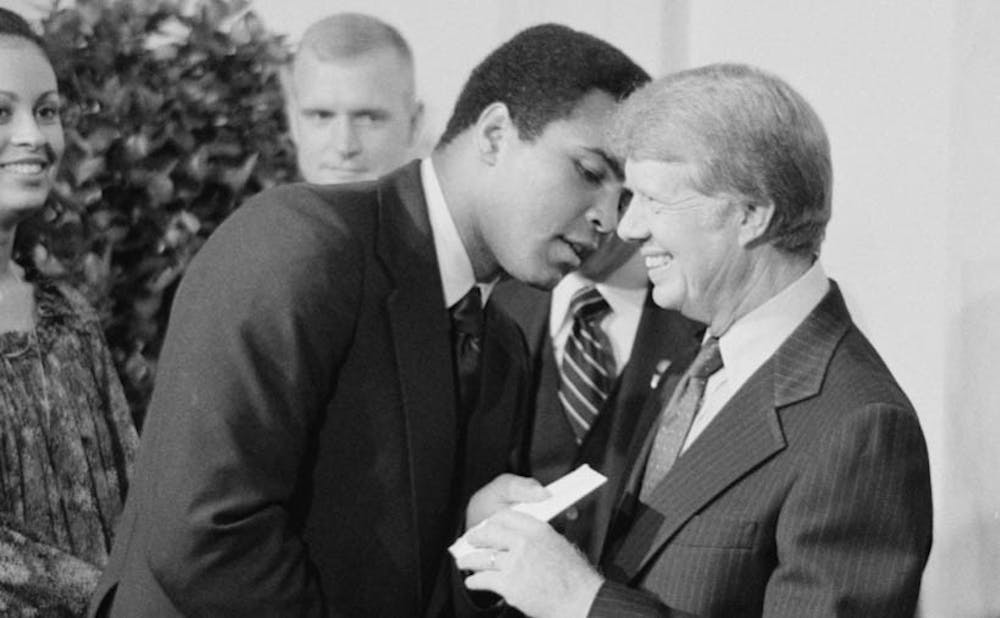President Donald says he is considering to pardoning boxing legend Muhammad Ali for draft evasion, but one prominent legal scholar argues there is nothing for him to pardon.
Walter Dellinger, Douglas B. Maggs professor emeritus of law at Duke, was quick to snap back on Twitter, saying a Trump pardon would accomplish nothing—Ali's conviction has been overturned for decades. Dellinger served as acting Solicitor General for the 1996-1997 term of the Supreme Court under then-President Bill Clinton. He argued topics ranging from physician-assisted suicide to the Brady Act, which mandates federal background checks for firearm purchases.
Trump said Friday that he was considering giving Ali a posthumous pardon for his draft-dodging conviction in 1967, when the heavyweight champion refused to join the U.S. Army during the Vietnam War.
"I'm thinking about that very seriously," Trump said.
Ali, who died in 2016, was convicted of draft evasion and fined $10,000, stripped of his heavyweight title, banned from boxing for three years and sentenced to five years in jail in June 1967. But an appeal took him to the Supreme Court, where his conviction was unanimously overturned in 1971—a few months after he lost the "Fight of the Century" to Joe Frazier, the first loss of his career.
After Trump said he wanted to pardon Ali, Dellinger took to Twitter to note that there was no conviction on the books for the president to erase.
The former solicitor general noted that the boxer's conviction had been overturned unanimously by the Supreme Court.
"There is nothing to pardon!" he wrote.
Dellinger is not the only one to note the lack of conviction on the books. Ronald Tweel, the lawyer for Ali's estate, issued a statement Friday saying that a pardon would be unnecessary.
“We appreciate President Trump’s sentiment, but a pardon is unnecessary,” Tweel wrote.
Pardons are not always used for strictly legal purposes, as they also symbolically act as a stamp of forgiveness. In 1977, President Jimmy Carter gave amnesty to all the Vietnam-era draft dodgers despite the fact that many had not been convicted of the act.
"The U.S. Supreme Court overturned the conviction of Muhammad Ali in a unanimous decision in 1971," Tweel wrote. "There is no conviction from which a pardon is needed."
Trump has recently exercised the power of the pardon on a handful of high-profile cases and publicly floated that he is reviewing lists of thousands of names for potential pardons.
In May, he gave a posthumous pardon to boxer Jack Johnson, who had been convicted under an interracial dating law. On Wednesday, he commuted the sentence of grandmother Alice Marie Johnson, who was serving a life sentence for drug convictions, after an Oval Office meeting with Kim Kardashian West.
Get The Chronicle straight to your inbox
Signup for our weekly newsletter. Cancel at any time.
Bre is a senior political science major from South Carolina, and she is the current video editor, special projects editor and recruitment chair for The Chronicle. She is also an associate photography editor and an investigations editor. Previously, she was the editor-in-chief and local and national news department head.
Twitter: @brebradham
Email: breanna.bradham@duke.edu

